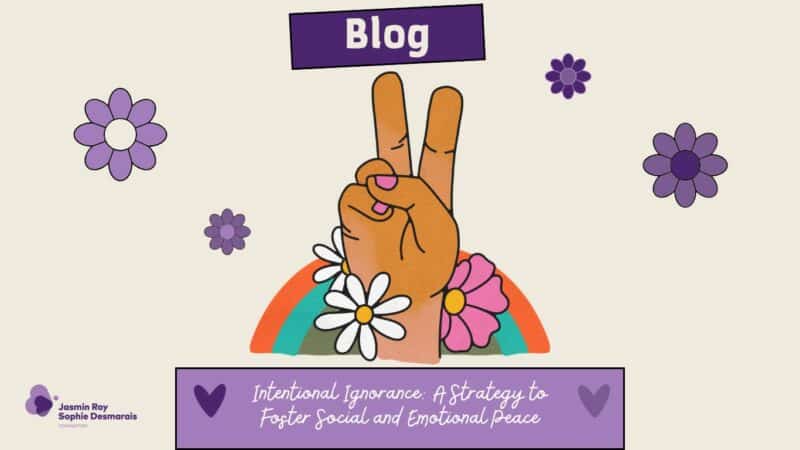Intentional ignorance is often misunderstood, as it can initially appear to be a form of negligence or indifference. Yet, in certain contexts, this approach can be a powerful tool for maintaining harmony, especially in education or interpersonal relationships. Far from being mere “ignorance” in the traditional sense, it is a conscious and deliberate strategy to avoid focusing on minor behaviors or conflicts that could otherwise strain relationships.
What is Intentional Ignorance?
Intentional ignorance is the deliberate decision not to react to certain undesirable, disruptive, or provocative behaviors. In education, this strategy is often used by teachers to avoid giving excessive attention to minor behaviors that do not require immediate intervention. By ignoring these small provocations, the teacher discourages the child from using such behaviors to seek attention.
Educational psychologist Robert J. Marzano is an advocate of this approach in the classroom. According to his research, paying too much attention to minor negative behaviors often reinforces them. Conversely, ignoring them (as long as they are not dangerous or harmful) helps children understand that this type of action is not an effective way to gain attention. It’s essential to note that intentional ignorance does not mean ignoring a child’s needs or serious behaviors but rather choosing wisely where to focus one’s attention.
Intentional Ignorance in Adult Relationships
Beyond education, intentional ignorance is also a valuable strategy in social and personal relationships. In psychotherapy, there is sometimes talk of “choosing your battles,” a form of emotional management that involves not reacting to every minor provocation or disagreement. This helps to avoid unnecessary conflict escalation and maintain peace in interactions.
Psychiatrist Viktor Frankl wrote about the importance of the “space between stimulus and response,” which is the human capacity to choose how to respond to a situation. Intentional ignorance leverages this capacity: it involves not allowing small irritations to trigger intense emotional responses. In other words, it’s the ability to filter what truly deserves our energy and attention.
The Benefits of Intentional Ignorance
Conflict Reduction
Intentional ignorance, especially in emotionally charged contexts, allows for the defusion of situations that might otherwise lead to arguments. By choosing not to react to minor provocations, one can maintain a more peaceful and productive atmosphere.
Reinforcement of Positive Behaviors
In education and relationships, giving attention to positive behaviors rather than negative ones encourages a more constructive dynamic. When people understand that only appropriate behaviors are noticed and rewarded, they are more likely to repeat them.
Stress Management
Learning to let go of minor frustrations or annoyances helps manage daily stress more effectively. Instead of remaining constantly alert to every irritation, intentional ignorance creates a more peaceful mental space where only genuinely important matters hold attention.
The Limits of Intentional Ignorance
While this strategy can be extremely effective, it’s important to use it with discernment. Certain behaviors, especially those that are harmful or dangerous, should never be ignored. Additionally, in intimate or professional relationships, repeatedly ignoring the emotional needs or concerns of others can create frustration and distance.
When applied thoughtfully, intentional ignorance is a strategy that can help us navigate our daily interactions with greater serenity. It reminds us that we have the power to choose where we direct our attention and energy, and that not everything warrants an immediate reaction. By learning to “let things go,” we foster greater harmony in our relationships with others and within our own minds.





